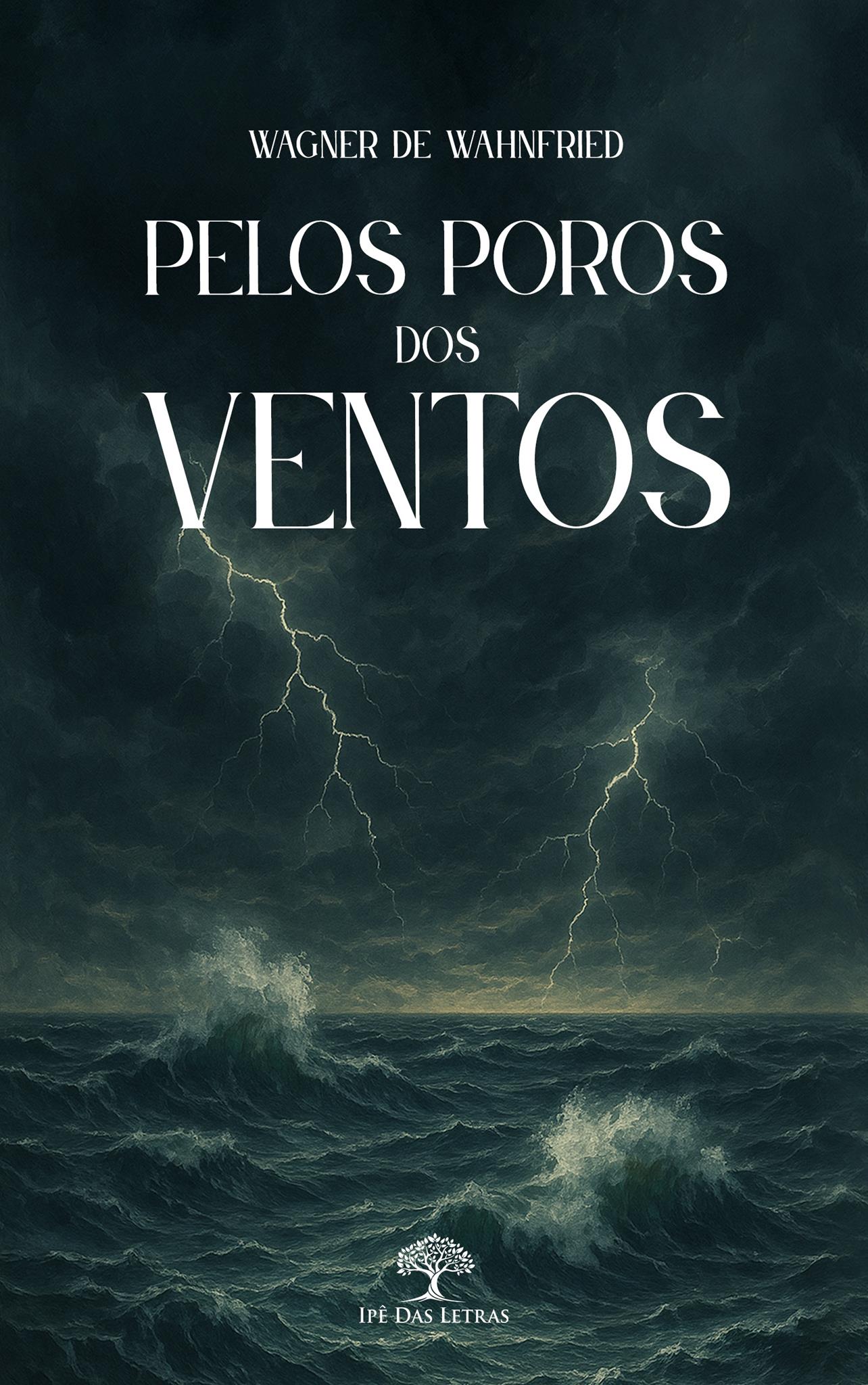
Writer and poet Wagner de Wahnfried presents his new work, “Through the Pores of the Winds,” a collection of poems that explores themes of spirituality, time, and self-knowledge. Published under the pseudonym Marcelo Gomes Jorge Feres, the book invites readers to reflect on the sacred in everyday life, blending lyricism, philosophy, and mythology in verses that move between the intimate and the universal.
With references to Heraclitus, Kierkegaard, and the Apollo/Dionysus dualism, Wahnfried proposes a meditative reading, in which winds, butterflies, mirrors, and webs become metaphors for existence. The publication reaffirms the author—winner of the national poetry contest in Montes Claros, Minas Gerais, and with 26 books published—as one of the most consistent voices in contemporary Brazilian philosophical poetry.
Your work seems to weave philosophy and emotion together very naturally. At what point in your life did poetry also become a form of philosophical reflection—and not just an expression of feeling?
In truth, poetry has always been, from my very beginnings, by and with it, an expression of philosophical reflections. I was still young, around sixteen, when, overcome by an unfamiliar and irresistible sensation of wanting to say/write something, I picked up a pen (in the seventies, writing was still done by hand) and wrote: “The multiplicity of things is dizzying; macro and microcosms relate to each other in infinite ways, constituting an impartial stage where a struggle takes place amidst evolution.”
Winds, butterflies, and mirrors appear as recurring symbols in your poems. Did they emerge intuitively, or do they consciously represent this search for the unity of being?
Even though it may seem incoherent, the fact is that the intuitive is greater and contains its own rationality. The path of rational-analytical logic, the path of science, unfolds over distant times, given the enormous distances to be traversed and covered, while the intuitive, more characteristic of the arts, is swift in its approaches, approaches, and arrivals. Winds, butterflies, and mirrors represent metamorphoses, fluidities, and dualistic reciprocities of spiritualist or cosmic Monism.
The book explores the experience of the sacred in everyday life. In such fast-paced, materialistic times, how do you see the role of poetry in reconnecting people with what’s essential?
Poetry is the fruit of the beautiful enchantment of the Divine Thaumazein; of Being, in the amazement of the Big Bang , faced with the totality in which, as essence, it is All and Point, alternating dialectically before infinite mirrors. The signal for the teleological walk of the Human Being, on earth, is the Know thyself , the Nosce te ipsum! However, on these paths ahead, everything turns, rotates, and whirls, smiling in Manvantaras (cyclical Eras).
There’s a tension between finitude and transcendence in your verses. Is writing about time a way of resisting it?
Yes, poetry is also salvation, in time, and throughout it, from the timeless. I was impressed, long ago, by the very large and the very small, and I also became blind when I left my Cave and, like Plato’s character, stared directly at the Sun. Let me illustrate: there are more molecules in a liter of water than all the grains of sand on planet Earth, and that’s very small. The light that orbits the Earth seven and a half times in one second takes more than 3 billion years to orbit a known star once. And that’s very large.

“Through the Pores of the Winds” is also an invitation to contemplation. In an increasingly noisy world, how do you believe readers can relearn to silence and feel poetry?
Poetry is felt in everything, and in every small or immense thing. Having eyes to see and ears to hear shows and demonstrates the infinity of everything. Everything is in everything, and the Point is All, and vice versa. Poetry is not just a moment of a single procedure. Poetry is a way of Being, being the Being itself, Poem, an integral part of Life, Poetry; and feeling all the rhymes that are the synchronicities that only reaffirm that there are no insignificant occurrences, for, as said, everything is worthwhile if the soul is not small.
You’ve published 26 books and now present another deeply symbolic work. How do you perceive the evolution of your writing over the years? Is there anything that remains unchanged?
Yes, I feel there is an inherent evolution in my writings. My certainties remain unchanged, the same as always. Being is Eternal, it evolves, and we are, as we have been told, gods! Potential gods, using a concept from Aristotle. Gods in seeds! However, it is our duties and obligations to work our “lands,” to dream of our heavens! Everything changes, said Heraclitus! And everything is simply the same, said Parmenides! And behold, Absolute Truth is the sum of all relative truths.
The blend of lyricism and philosophical essayism is a hallmark of yours. When you begin a poem, is it born of emotion or an idea that inspires you?
It’s born like this, from an idea, and also from an emotion. In the silence within, I then toss a letter, a word, into the air, like a true bait, randomly… and the Whole, attentive, available, and assisting, emerges like a genie from a lamp I mined long ago within myself. Everything remains to be said, and if ninety-two elements construct an entire universe, the entire alphabet can do the same.
If you could choose a single verse from “Pelos Poros dos Ventos” to define your own journey as a writer and human being, what would it be — and why?
It could be this:
Life always chooses for me
Just take your hands in mine
And dance, smile and fly blowing winds
And she, windy, hugs me and we take a seat
In birds, butterflies, in blue skies weaving
Webs of stars, plots and firmaments, ah! In letters
And it could be this poem because, as beauty is directly related to synthesis, here, in these simple verses, it is said that life agrees with us in the same designs of totality, improvements, evolution in the Good, in the Good and in the Just, so that we can reach, with Poetry, the Peaks of the Highest!


